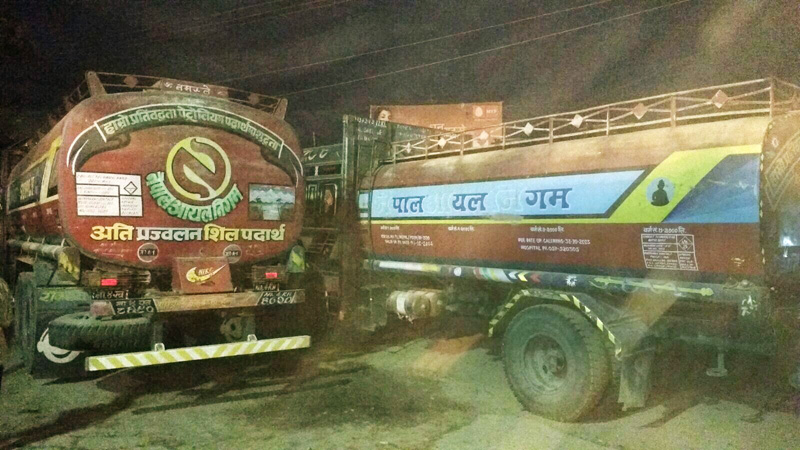NOC instructed to develop new storage facilities
Kathmandu, February 23
Nepal Oil Corporation (NOC) — the state-owned petroleum company — has been urged to develop storage facilities at various locations along the Mid-Hill Highway.
The government, eyeing the demand of fuel in the future after the completion of the highway project, has instructed NOC to set up storage facilities so that NOC can serve the fuel demand of this section and also increase the stock of the essential commodity in the country.
Following the direction of the Ministry of Supplies (MoS), NOC has been preparing to conduct feasibility study of different locations along the Mid-Hill Highway to construct fuel storage facilities, according to NOC Spokesperson Mukunda Prasad Ghimire. The highway stretches from Panchthar of eastern Nepal to Baitadi of the far-western region.
NOC has not expanded its storage facilities in the last 25 years. Due to its weak financial health, plans of the government entity to expand storage depots have been stalled for long. However, the consumption of petroleum products has increased substantially in the last two decades. Currently, NOC has storage capacity for 62.94 million litres of petroleum products across the country. The storage capacity of NOC can cater to the country’s petroleum demand for only around two weeks.
Total consumption of petrol and diesel per day across the country hovers at around 1.1 million litres and 2.6 million litres, respectively, according to NOC.
Due to lack of proper storage facility, fuel supply becomes erratic within a week if supply from India is obstructed for any reason — as witnessed during the recent border blockade organised by agitating Madhes-based political parties.
NOC’s stock position was at a critical level a month after the blockade was imposed even though it had barred private vehicles from refilling fuel, according to Ghimire. “NOC would not even be able to supply fuel to vehicles of essential services and essential service providers like hospitals and telecommunication companies to run their generators if supply from India were totally blocked.”
Currently, NOC has storage depots for petrol, diesel, aviation turbine fuel and kerosene. NOC has also been planning to set up storage facility for liquefied petroleum gas (LPG) in Janakpur, which could later be linked with a pipeline from Muzaffarpur of India. Due to lack of storage facility for LPG, shortage of cooking fuel can be witnessed shortly after the supply is disrupted from India. “If we set up storage facility for LPG, we would be able to cover up for the shortfall of import of a certain period by utilising the stored gas.”
Likewise, there is also a plan to expand Amlekhganj depot of NOC as a component of 41-km Raxaul-Amlekhganj Petroleum Pipeline Project. Nepal and India signed an agreement to build the petroleum pipeline in August of last year. The construction of the pipeline is expected to be completed within 30 months from the date of commencement.
As NOC has been making profit due to the drop in oil prices in the international market, its plan to set up new storage depots could be realised from its own resources.






